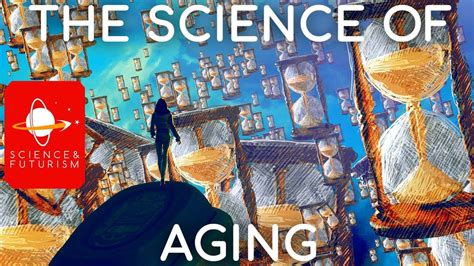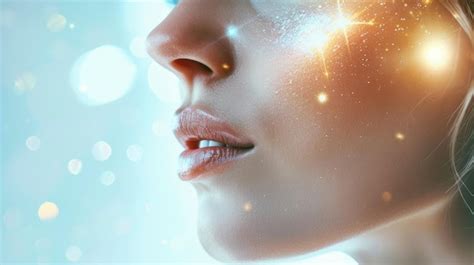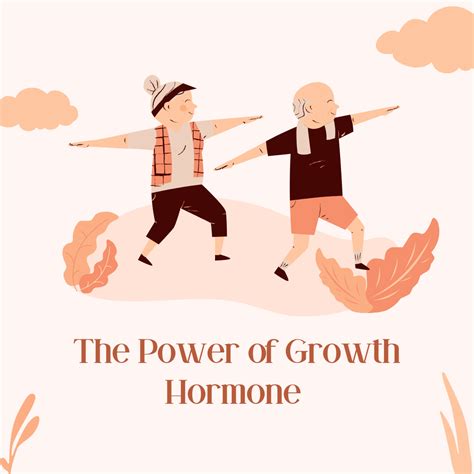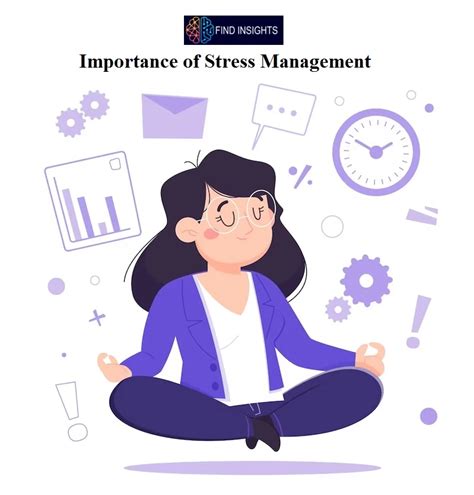Imagine a world where the ticking hands of the clock hold no power, where the ravages of time become nothing more than a distant memory. A world where the pursuit of eternal youth is not just a fantasy, but a reality within reach. At the heart of this tantalizing dream lies the key to unlocking the secrets of rejuvenation, allowing us to turn back the hands of time and reverse the signs of aging.
But what exactly does it mean to defy the inevitable march of time? It is not merely about preserving a smooth complexion or hiding behind a carefully curated facade of youth. Instead, it is a holistic journey that encompasses the mind, body, and soul.
The quest for eternal youth is a multifaceted endeavor, requiring us to explore the depths of science, embrace the wisdom of nature, and harness the power within ourselves. It is a journey that calls upon us to discover innovative methods, delve into cutting-edge research, and uncover the ancient wisdom passed down through generations. Through this amalgamation of knowledge and experience, we can learn how to counteract the effects of time and emerge as youthful beings, packed with vitality and vibrancy.
The Science of Aging: Understanding the Process

Exploring the intricate mechanisms behind the natural process of aging can provide valuable insights into the complex interplay of various factors that contribute to its progression. By delving into the science of aging, we can gain a deeper understanding of the physiological changes that occur within our bodies over time.
- Cellular Senescence: The gradual decline in cell function and replication ability is a fundamental aspect of aging. As cells divide and replicate, their telomeres become shorter, leading to diminished cell viability and eventual replicative senescence.
- Genetic Factors: Genetic components play a significant role in determining the rate at which an individual ages. Variations in certain genes can influence susceptibility to age-related diseases and impact overall longevity.
- Epigenetics: Epigenetic modifications, such as DNA methylation and histone modifications, can affect gene expression patterns and contribute to the aging process. Understanding these modifications can shed light on the mechanisms underlying age-related changes.
- Oxidative Stress: Accumulation of reactive oxygen species (ROS) over time can lead to oxidative stress, causing damage to cellular components, including DNA, proteins, and lipids. This oxidative damage is closely linked to the aging process.
- Inflammaging: Chronic inflammation, commonly referred to as inflammaging, is a hallmark of aging. Age-related changes in the immune system can lead to increased production of pro-inflammatory molecules, contributing to the overall decline in physiological function.
- Hormonal Changes: Alterations in hormonal levels, such as the decline of sex hormones like estrogen and testosterone, are associated with age-related changes. These hormonal changes can influence various aspects of aging, including bone health, muscle mass, and cognitive function.
- Lifestyle Factors: Factors like diet, exercise, stress levels, and sleep patterns can significantly impact the rate of aging. Adopting a healthy lifestyle can slow the aging process and promote overall well-being.
By comprehending the intricate web of processes involved in aging, scientists and researchers can strive to develop interventions and therapies that aim to slow down or mitigate the effects of aging, enhancing the quality of life for individuals as they age.
Exploring the Factors That Contribute to the Aging Process
In this section, we will delve into the various factors that play a significant role in the natural progression of aging. Understanding these underlying elements is crucial in our quest to uncover potential methods of slowing down the aging process.
1. Genetic Factors:
- Genetic predisposition
- DNA damage and repair mechanisms
- Gene expressions
2. Environmental Factors:
- Oxidative stress and free radicals
- Exposure to toxins and pollutants
- UV radiation and its impact on skin aging
3. Lifestyle Factors:
- Poor nutrition and dietary habits
- Lack of physical activity
- Chronic stress and its effects on cellular aging
4. Cellular Factors:
- Telomere shortening and cellular senescence
- Inflammation and its influence on aging
- Mitochondrial dysfunction
5. Hormonal Factors:
- Declining levels of key hormones such as estrogen and testosterone
- Altered hormone signaling and its impact on the aging process
- Hormonal imbalances and their effects on tissue regeneration
By exploring the multifaceted contributors to aging, we can begin to develop a comprehensive understanding of the underlying mechanisms involved. Armed with this knowledge, researchers and scientists can pave the way for potential interventions and therapies aimed at slowing down or even reversing the effects of aging.
Revitalizing Your Skin: Nourishing from the Inside Out

Your skin, a vital part of your overall appearance, holds the key to a youthful and radiant look. In this section, we will explore the concept of revitalizing your skin by focusing on nourishing it from within. By understanding the importance of a well-balanced diet and adopting healthy habits, you can stimulate the rejuvenation process and achieve a glowing complexion.
Feeding Your Skin with Essential Nutrients
Your skin's health is intricately linked to the nutrients you provide your body with. Emphasizing a diet rich in antioxidants, vitamins, and minerals can have a transformative effect on your skin. Consuming foods such as berries, leafy greens, and nuts can supply your body with essential nutrients that combat free radicals and promote collagen production. Including omega-3 fatty acids found in fish, flaxseeds, and walnuts can also foster skin elasticity and hydration.
Hydrating for Youthful Vitality
Proper hydration is a crucial aspect of nourishing your skin from the inside out. Drinking an adequate amount of water throughout the day promotes the elimination of toxins and helps maintain the elasticity and suppleness of your skin. Additionally, incorporating hydrating foods in your diet, such as cucumber, watermelon, and citrus fruits, can provide an extra dose of hydration and support optimal skin health.
Herbs and Teas for Skin Rejuvenation
Nature's remedies hold immense potential in revitalizing your skin. Incorporating herbs like chamomile, green tea, and rosemary into your diet or skincare routine can offer powerful antioxidant benefits and anti-inflammatory properties. These natural ingredients can help counteract the effects of aging by reducing oxidative stress and promoting a youthful complexion.
Developing Healthy Lifestyle Habits
Revitalizing your skin goes beyond diet alone. Adopting a holistic approach to skincare involves developing healthy lifestyle habits. Engaging in regular physical activity not only improves blood circulation but also promotes a natural glow by flushing out toxins. Ensuring an adequate amount of sleep and managing stress levels also play a crucial role in maintaining healthy skin and preventing premature aging.
Revitalizing your skin is within your reach by nurturing it from within. By embracing the power of nutrition, hydration, natural remedies, and a healthy lifestyle, you can unlock the secrets to achieving a radiant and youthful complexion.
The Significance of Proper Nutrition in Maintaining Youthful Skin
The appearance of youthful and vibrant skin is a common desire as individuals age. While there are several factors that contribute to the aging process, the role of nutrition in maintaining youthful skin cannot be overstated. Adequate nutrition plays a crucial role in ensuring optimal skin health and delaying the visible signs of aging.
1. Balanced Diet: Consuming a balanced diet that includes a variety of fruits, vegetables, lean proteins, whole grains, and healthy fats is essential for promoting youthful skin. These nutrient-rich foods contain vitamins, minerals, antioxidants, and essential fatty acids that nourish the skin from within.
2. Hydration: Proper hydration is vital for maintaining healthy and youthful skin. Drinking an adequate amount of water helps to flush out toxins, maintain skin elasticity, and prevent dryness. Additionally, incorporating hydrating foods such as cucumbers, watermelon, and berries can further support optimal skin hydration.
3. Antioxidants: Antioxidants play a significant role in protecting the skin from oxidative stress, which is a major contributor to the aging process. Foods rich in antioxidants, such as berries, dark chocolate, green tea, and leafy greens, can help combat free radicals and slow down the formation of wrinkles, fine lines, and other signs of aging.
4. Essential Fatty Acids: Omega-3 fatty acids, found in foods like fatty fish, walnuts, and flaxseeds, are essential for maintaining youthful skin. These fatty acids help to strengthen the skin's barrier, improve hydration, and reduce inflammation, resulting in a smoother and more supple complexion.
5. Collagen-Boosting Foods: Collagen is a protein that provides structure and elasticity to the skin. Consuming collagen-boosting foods, such as bone broth, citrus fruits, leafy greens, and soy products, can support collagen production and help to maintain firm and youthful skin.
Overall, a well-rounded and nutrient-dense diet, along with proper hydration, can significantly contribute to the maintenance of youthful skin. Incorporating a variety of fruits, vegetables, lean proteins, and healthy fats into your daily meals can provide the necessary nutrients to support skin health and delay the visible signs of aging. Remember, proper nutrition is not only beneficial for your overall well-being but also plays a crucial role in achieving and maintaining youthful skin.
Unlocking the Fountain of Youth: The Power of Exercise

Exploring the secrets to staying young and vibrant, this section delves into the remarkable impact that exercise can have on reversing the signs of aging. By harnessing the potential of physical activity, individuals have the extraordinary ability to unleash their own personal fountain of youth.
Embracing an active lifestyle
Regular exercise acts as a catalyst for renewing the body and mind. When we engage in physical activity, we activate a chain reaction that promotes resilience and vitality. By embracing an active lifestyle, we awaken our inner potential and unlock the power to defy the effects of time.
Enhancing energy and vitality
Exercise ignites a surge of energy and vitality that can transform our lives. As we move our bodies and elevate our heart rates, we stimulate the production of endorphins, the natural mood enhancers. Through this process, not only do we feel more energetic, but we also attain a renewed sense of optimism and empowerment.
Building strength and resilience
Regular physical activity builds strength and resilience, enabling us to counteract the wear and tear of the aging process. With each workout, we challenge our bodies in a controlled manner, prompting the growth of muscles and the fortification of bones. This newfound strength equips us to better navigate the challenges that come with aging.
Boosting cognitive function
Exercise doesn't just benefit our physical well-being; it also has a remarkable impact on our mental acuity. By increasing blood flow to the brain, physical activity enhances cognitive function, including memory, focus, and overall brain health. As we exercise our bodies, we exercise our minds as well, keeping cognitive decline at bay.
Empowering the spirit
The power of exercise extends beyond the physical and mental realms; it also empowers our spirit. As we push through physical boundaries and achieve personal milestones, we cultivate a sense of confidence and self-belief. This newfound sense of inner strength and accomplishment radiates outward, allowing us to embrace life's challenges with renewed vigor and a youthful mindset.
The Impact of Regular Physical Activity on Slowing the Aging Process
Engaging in regular physical activity has been proven to have significant effects on slowing down the aging process. By incorporating exercise into our daily lives, we can improve our overall well-being and maintain a youthful appearance.
Physical activity not only helps us stay fit and active, but it also plays a crucial role in preserving our physical and mental health as we age. It enhances our cardiovascular system, strengthens our muscles and bones, and boosts our immune system. Additionally, regular exercise promotes the production of endorphins, which are known as the body's natural mood enhancers, reducing stress and enhancing mental clarity.
As we grow older, our body undergoes various changes such as decreased muscle mass, reduced flexibility, and a decline in cognitive functions. However, regular physical activity can help prevent or slow down these age-related changes, allowing us to maintain a higher level of functionality throughout our lives. By engaging in activities such as walking, swimming, cycling, or strength training, we can preserve muscle mass, increase flexibility, and improve cognitive function.
| Benefits of Regular Physical Activity in Slowing Aging: |
|---|
| 1. Improved cardiovascular health |
| 2. Enhanced muscle strength and endurance |
| 3. Increased flexibility and balance |
| 4. Boosted immune system |
| 5. Reduced risk of chronic diseases |
| 6. Delayed onset of age-related cognitive decline |
Incorporating regular physical activity into our daily routine not only helps us slow down the aging process but also improves our quality of life. It allows us to maintain our independence, enjoy a higher level of physical and mental well-being, and ward off age-related diseases. Remember, it's never too late to start being physically active, and even small changes can have a significant impact on our overall health and longevity.
Beauty in Balance: The Significance of Stress Management

In today's fast-paced world, where the hands of time never seem to slow down, it has become increasingly crucial to understand the impact of stress on our overall well-being. In this section, we delve into the profound connection between stress management and maintaining a youthful appearance, highlighting the importance of achieving a state of balance in our lives.
When it comes to combating the signs of aging, it often goes beyond just applying creams and serums. The effects of stress on our body and mind can accelerate the aging process, leaving us feeling and looking older than we are. Stress can manifest in different ways, from fine lines and wrinkles to a dull complexion and lack of vitality. Recognizing the detrimental effects of stress on our physical appearance is the first step towards finding effective solutions.
Managing stress is not just about finding momentary relief; it is a lifestyle choice that should be integrated into our daily routines. By adopting healthy stress management techniques such as meditation, exercise, and adequate rest, we can effectively counteract the negative impacts of stress on our skin and overall beauty. Creating a harmonious balance between work, personal life, and relaxation is key to preserving a youthful glow and radiance.
In addition to its aesthetic benefits, stress management also plays a vital role in our overall health and well-being. Chronic stress can have serious implications on our immune system, cardiovascular health, and mental clarity. By prioritizing stress reduction, we not only enhance our physical appearance but also boost our energy levels, enhance cognitive function, and promote a sense of calm and contentment.
Ultimately, achieving beauty in balance requires a holistic approach that encompasses both external skincare rituals and internal well-being practices. By embracing stress management techniques and nurturing our minds as well as our bodies, we can reverse the harmful effects of stress, unveil our true beauty, and radiate youthfulness from within.
How Stress Impacts the Aging Process and Effective Management Techniques
Stress plays a significant role in accelerating the aging process and negatively influencing overall well-being. Understanding the relationship between stress and aging is crucial for individuals seeking to reverse its effects and maintain a youthful appearance and vitality. In this section, we will explore the various ways that stress affects aging and provide valuable tips for effectively managing stress in order to promote healthy aging.
The Link Between Chronic Stress and Premature Aging
- Chronic stress can lead to the accumulation of free radicals in the body, causing cellular damage and accelerating the aging process.
- Stress hormones, such as cortisol, can disrupt the body's natural repair mechanisms, impairing collagen production and leading to wrinkles, sagging skin, and other visible signs of aging.
- Inadequate stress management can contribute to lifestyle habits that promote aging, such as poor sleep quality, unhealthy eating patterns, and lack of exercise.
Effective Stress Management Techniques for Anti-Aging Benefits
While it may not be possible to completely eliminate stress from our lives, there are various techniques that can effectively manage stress and minimize its impact on aging:
- Practice mindfulness and meditation: Engaging in mindful practices helps reduce stress levels and promotes a sense of calm and relaxation, slowing down the aging process.
- Engage in regular physical activity: Exercise releases endorphins that elevate mood and reduce stress, leading to a more youthful appearance and improved overall well-being.
- Adopt a healthy lifestyle: Consuming a balanced diet, getting adequate sleep, and avoiding excessive alcohol and tobacco use can help combat the detrimental effects of stress on the body.
- Build a support network: Surrounding yourself with positive and supportive individuals can provide emotional support and help alleviate stress.
- Practice stress-reducing techniques: Techniques such as deep breathing exercises, journaling, and engaging in hobbies can effectively reduce stress levels and promote anti-aging benefits.
By understanding the impact of stress on aging and implementing effective stress management techniques, individuals can significantly reverse the effects of aging and maintain a more youthful and vibrant appearance.
FAQ
Can aging be reversed?
Yes, according to recent studies, there are potential ways to reverse the effects of aging. Scientists have discovered various techniques that can help rejuvenate aging cells and tissues.
What are some natural ways to slow down the aging process?
There are several natural ways to slow down the aging process. Maintaining a healthy diet rich in antioxidants, exercising regularly, getting enough sleep, reducing stress levels, and avoiding excessive sun exposure are some effective methods.
Are there any cosmetic procedures that can reverse the signs of aging?
Yes, there are several cosmetic procedures available that can help reverse the signs of aging. These include facelifts, dermal fillers, laser resurfacing, and chemical peels. However, it's important to consult with a qualified professional before undergoing any cosmetic procedure.
Is there a specific age at which it becomes difficult to reverse the effects of aging?
While it's easier to reverse the effects of aging in the earlier stages, there is no specific age at which it becomes impossible. The effectiveness of anti-aging treatments may vary depending on factors such as overall health, lifestyle, and genetics.
What are the potential risks and side effects of anti-aging treatments?
Like any medical or cosmetic procedure, anti-aging treatments carry potential risks and side effects. These can include infection, scarring, allergic reactions, and in some cases, unsatisfactory results. It's important to thoroughly research and consult with a qualified professional before undergoing any treatment.



